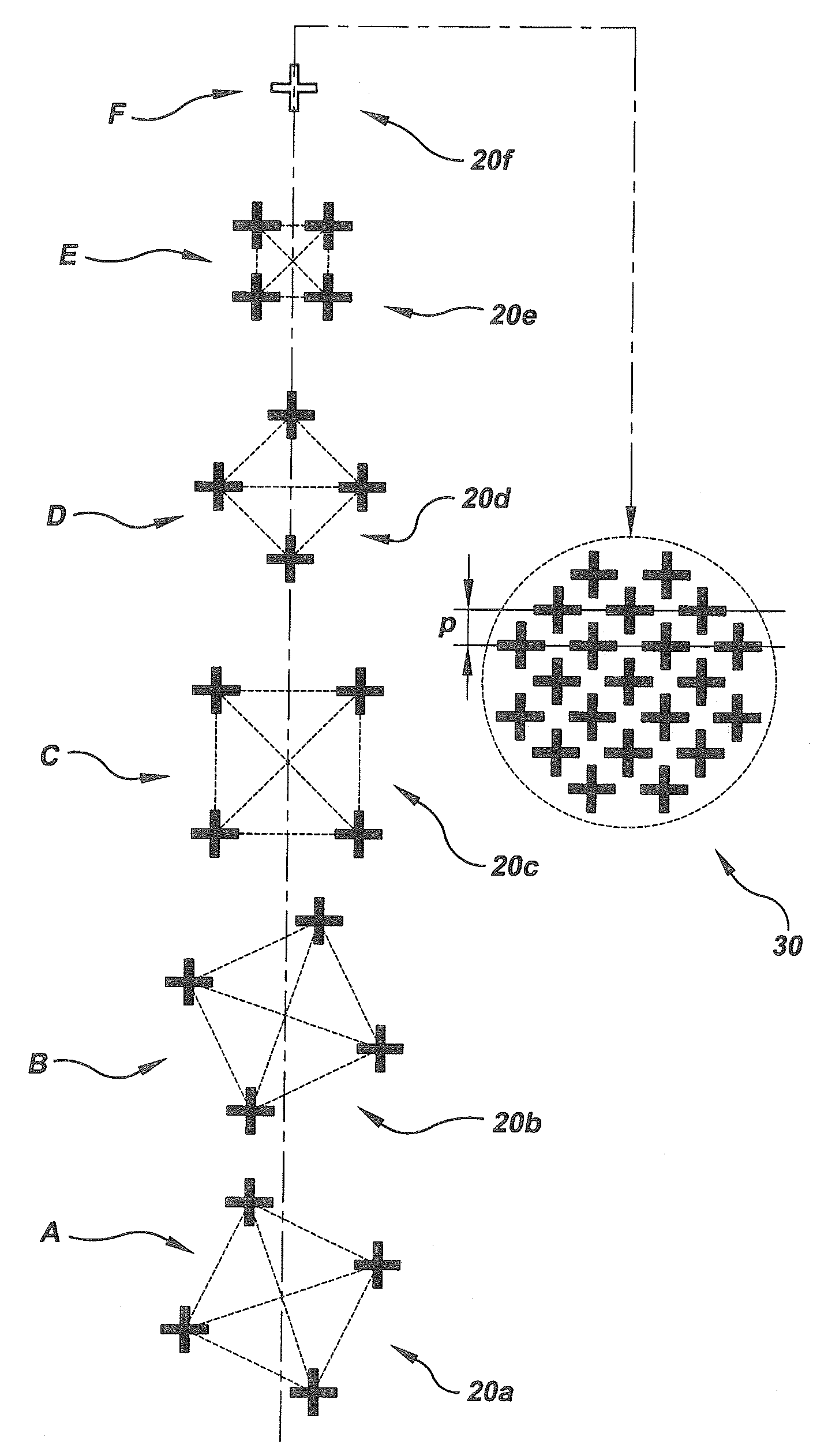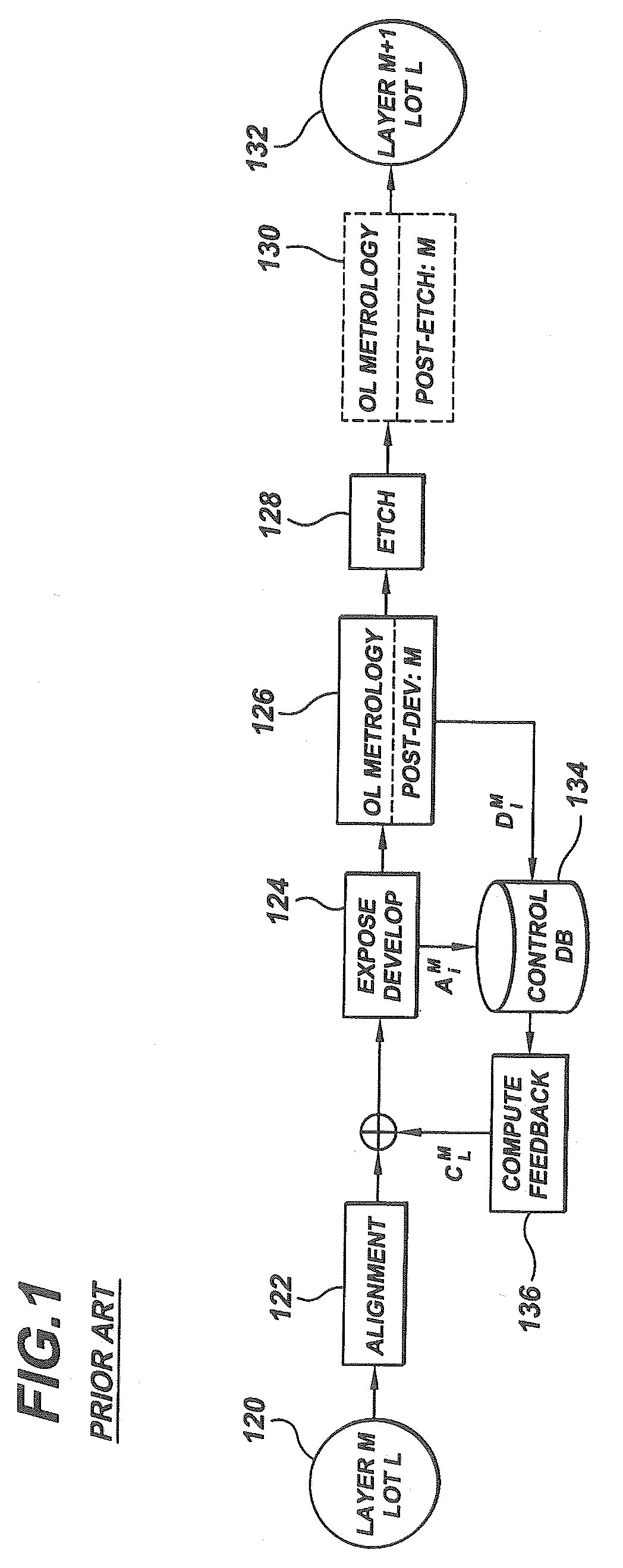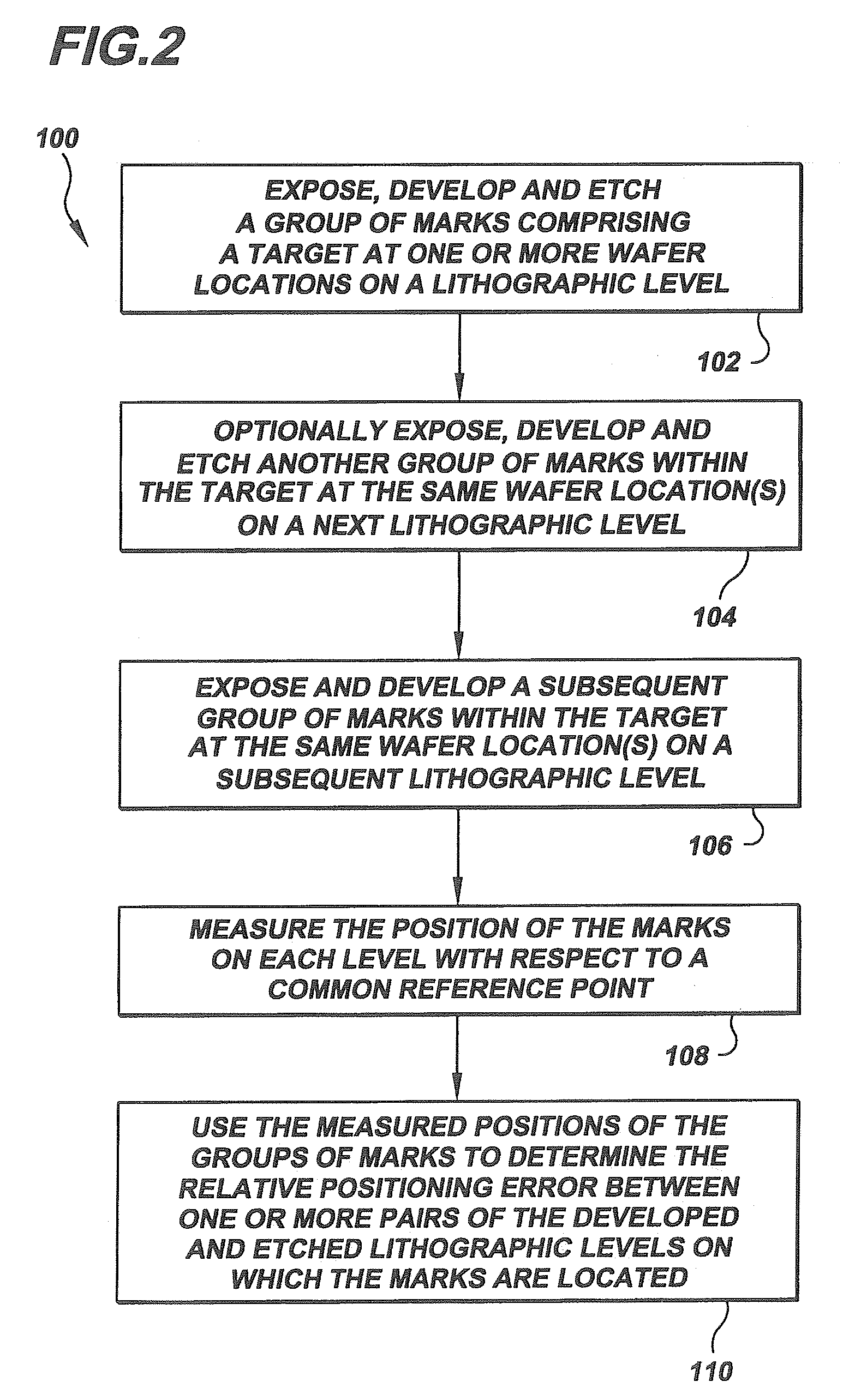Method To Control Semiconductor Device Overlay Using Post Etch Image Metrology
- Summary
- Abstract
- Description
- Claims
- Application Information
AI Technical Summary
Benefits of technology
Problems solved by technology
Method used
Image
Examples
Embodiment Construction
)
[0028]In describing the preferred embodiment of the present invention, reference will be made herein to FIGS. 1-5 of the drawings in which like numerals refer to like features of the invention.
[0029]The present invention provides an improved method to permit the post etch measurement to be used to reduce the post lithography bias in the metrology. The method employs prior photo level, post etch measurement targets, which are usually visible at subsequent post lithography metrology steps. This enables the measurements for the level of interest to be compared to the post lithography measurements, so that error bias may be determined between the two. It has also been shown that this bias remains fairly constant for a given tool / process conditions.
[0030]The modeled error bias may be used by the APC application to correct the lithography control by adding the modeled bias to the last set of post lithography measurements. Although the bias may drift over time or after tool maintenance, i...
PUM
 Login to View More
Login to View More Abstract
Description
Claims
Application Information
 Login to View More
Login to View More - R&D
- Intellectual Property
- Life Sciences
- Materials
- Tech Scout
- Unparalleled Data Quality
- Higher Quality Content
- 60% Fewer Hallucinations
Browse by: Latest US Patents, China's latest patents, Technical Efficacy Thesaurus, Application Domain, Technology Topic, Popular Technical Reports.
© 2025 PatSnap. All rights reserved.Legal|Privacy policy|Modern Slavery Act Transparency Statement|Sitemap|About US| Contact US: help@patsnap.com



